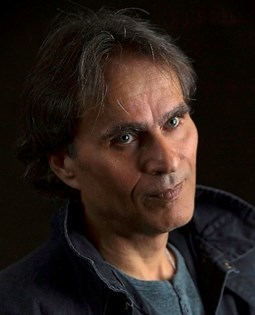It’s been 110 years since Lucy Maud Montgomery published Anne of Green Gables, and it remains as close to the mythical Great Canadian Novel as has ever been written.
Montgomery’s heroine Anne Shirley is still beloved by millions across the planet, and her character, a precocious red-haired orphan child navigating the stormy waters of her first-ever home in Prince Edward Island, is something never to be messed with, say many literary purists.
There have been many film and television adaptations of the book, most famously the three-part miniseries of the 1980s, with Meghan Follows’ brilliant and faithful characterization of Montgomery’s Anne.
And now we have the CBC’s new seven-episode series Anne, also known as Anne with an E and now running on Netflix, with Irish-Canadian actress Amybeth McNulty’s challenging task to interpret a new screenplay by Canadian producer and writer Moira Walley-Beckett, a major creative force behind the groundbreaking but dark Breaking Bad television series.
With Walley-Beckett steering the new Anne, anyone thinking her interpretation will again mirror Montgomery’s character will be surprised, even shocked. While an overwhelming majority of critics have praised the series and Walley-Beckett’s screenplay, a few have sounded the alarm it just isn’t right to mess with what was already a masterpiece.
We still have the hyper-imaginative Anne, a 13-year-old with a hot temper who breaks a slate over a boy’s head, but Walley-Beckett gives viewers a more detailed picture of the abuse Anne endured before arriving at Green Gables. There is greater depth created for Anne’s challenges – her first school, the teasing about being an orphan, a daughter to elderly siblings Marilla and Matthew Cuthbert, and having a first real chance of finding out who she really is. And our new Anne, still desperate to be loved and "owned” by a real family, retains her boundaries. If you don’t trust what this kid with the imaginary friend Katie says, then she certainly has the fortitude to tough it out on her own.
"In this day and age, themes of identity, prejudice, bullying, being an outsider, searching for a way to be accepted and how to belong are entirely topical and super relevant, and those are themes that are built into the story of Anne,” said Walley-Beckett last year.
Today’s young women need not be orphans to identify with Anne. The issues Anne faces are ones that all today’s teens struggle with almost daily. They were relevant 110 years ago but almost never talked about. With Walley-Beckett’s creation, which is currently in development for a second season, they will have an easier time relating to Anne’s trials, and towards self-discovery.
If Walley-Beckett is guilty of charges of messing with a classic literary heroine, what a beautiful mess it is.
Johnnie Bachusky is the editor of the Innisfail Province.

